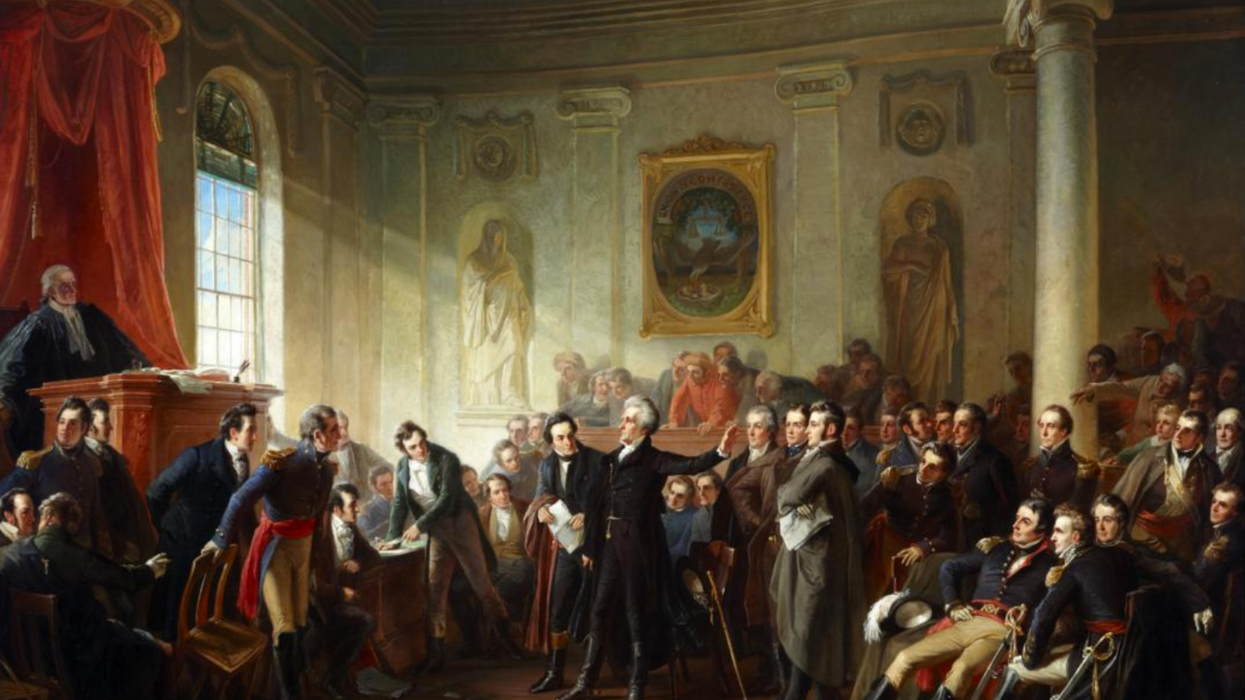'Fears of a dictatorial presidency': How an 1834 debate sheds light on 2024’s post-election turmoil

A depiction of President Andrew Jackson painted in 1859 (Wikimedia Commons)
December 16, 2024 | 02:46PM ETTrump
President-elect Donald Trump has been threatening to use the process known as "recess appointments" if Senate Republicans resist his more controversial nominees in 2025.
The idea, critics say, is to force the U.S. Senate to recess, then ram through his nominees without senators having a chance to vote on them.
Trump's critics, from Democrats to Never Trump conservatives, have had a variety of reactions to his threat. Some have argued that the president-elect is failing to respect the "advice and consent" role that senators are given in the U.S. Constitution; others have said that no threat is necessary, as most GOP senators will cave in and rubber-stamp his nominees regardless of their qualifications.
READ MORE: 'Trump ’28': Bannon calls for third term
In an article published by the Washington Post on December 16, columnist Jason Willick and researcher Philip Huff compare the post-election turmoil of late 2024 to the turmoil of another time in U.S. history: 1834, when President Andrew Jackson was serving his second term and his "battle with the Senate over the Bank of the United States reached a crescendo."
"The 1834 debate over the scope of the president's power to adjourn Congress has been largely forgotten," Willick and Huff explain. "But it can shed light on a troubling constitutional clause that a bold or desperate president might try to exploit. The history also contains broader lessons for America's current era of populist politics and constitutional hardball: that fears of a dictatorial presidency extend far back in the country's history, and that any quasi-monarchical powers the Constitution does afford American presidents are best left untested at their limits."
Willick and Huff add, "Unlike Trump, who in 2020, explicitly threatened to adjourn Congress, Jackson never did so."
Willick and Huff note, however, that The Globe, a newspaper sympathetic to Jackson, "published a forceful defense of presidential adjournment power."
READ MORE: Who are the Arizona voters without proof of citizenship? The answer may surprise you
"Though the Senate infuriated Jackson by censuring him in March 1834," they recall, "the two houses of Congress ended their session voluntarily without rechartering the bank. Jackson didn't need to act against the Senate, but he probably thought the Globe was right that he had the constitutional power to do so."
READ MORE: New Kristi Noem proposal would fund Christian ‘segregation academies’
Read Jason Willick and Philip Huff's full article at this link (subscription required).